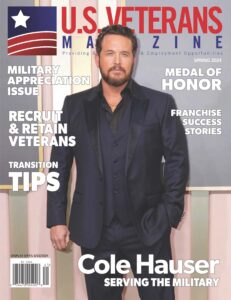Post Military Education – Going back to school is one of life’s big choices. And like all major decisions, it might feel a little overwhelming — particularly if you’re just starting to navigate the civilian world again after military service.
Make it a little easier by breaking your decision down into smaller steps. If you’re on the fence about whether to continue your education, here are five questions you can ask yourself before taking the leap back into school.

What is my goal? (Or what do I want to be when I grow up?)
This one tops our list for a reason. Once you have an answer to this critical question, you can start working backwards. Before you commit money and time to returning to school, think about what you hope to achieve by continuing your post military education and where you see your civilian career taking you. You don’t want to take courses without an endgame in mind because then you might end up with classes you don’t need.
If you’re not sure of your goal, consider the skills you mastered in the military and how they might translate to a civilian career. Evaluate your strengths using a test, like with the CareerScope Assessment at the Department of Veterans to identify potential job courses. See a career counselor or find someone in your field of interest to meet with or even shadow for a day. But you don’t have to do any of this alone. The VA also offers free career and educational counseling to those who are about to leave the military or who have recently transitioned.

What should I study?
Once you’ve decided on a career path, it’s time to choose a program of study for your post military education. If you want to work at VA, you can pick from just about any program. As the largest integrated health care system in the nation, we employ hundreds of thousands of clinical and non-clinical staff across the country. We have job opportunities across the spectrum of careers, not just in health care.
Where should I go to school?
There are thousands of colleges in the U.S., ranging from two-year technical schools to four-year liberal arts schools. Narrow down your list by finding a school that offers the program you’re interested in and is located nearby if you plan to attend in person. You might also want to consider a school with an active veteran community and resources for former military for post military education.

Can I afford it?
We want to make sure the answer to this question is a definitive yes. As a veteran, you may be eligible to receive funding for some or all of your college, graduate school or post military education training program through the GI Bill — not to mention the generous scholarships, loan repayment and reimbursement and partner programs with colleges and universities that are available to VA employees. The VA National Education for Employees Program (VANEEP) scholarship even pays your salary and tuition while you pursue clinical licensure.
Do I have time?
Juggling a career, family life and school can be a delicate balancing act. Be sure you’re at the right place in your life to devote the time you need to your studies. It might be helpful to make a list of the time challenges you foresee and the resources you can put in place to help you manage them. Building this support system now can save you headaches down the road. At VA, you’ll find a culture of continuous learning with flexible work schedules, possible telework options and generous leave to help you manage going back to school.
Source: VAntagePoint Blog



